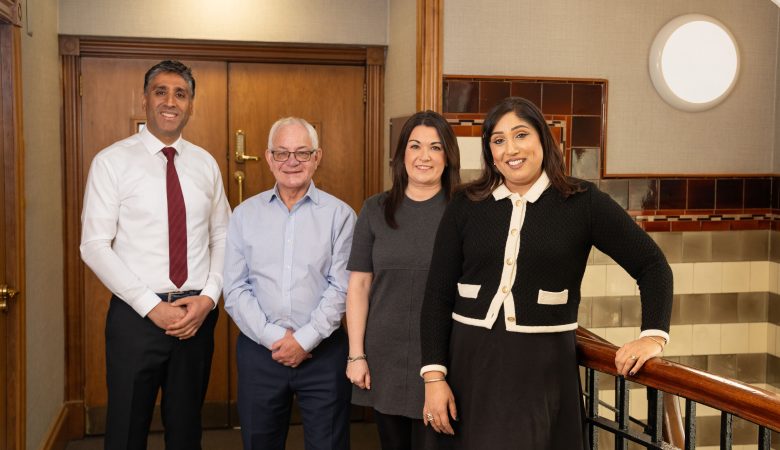Why do some businesses fail? Jack Mason, the CEO of Inc & Co, offers unique insights into this question. He believes that a crucial factor lies in not recognising the signs of trouble early enough. With Inc & Co, Mason has turned many struggling companies around by addressing issues head-on and implementing effective strategies.
Inc & Co’s strategy focuses on acquiring businesses facing financial difficulties and revitalising them. Mason highlights that many businesses fail due to poor leadership and a lack of adaptability. Learning from these failures, Inc & Co has grown into a major player, successfully navigating through various sectors such as retail, travel, and digital.
In his experience, Mason also acknowledges that even the best plans can encounter unforeseen challenges. Leaders need to stay flexible and open to change to avoid business failure. His journey with Inc & Co demonstrates that resilience and a proactive approach are essential for any business striving to succeed.
Critical Factors Contributing to Business Failure
Several factors can lead to the failure of a business, including misreading market trends, financial mismanagement, and operational inefficiencies. Addressing these areas can help in improving business stability and market presence.
Misreading Market Demand and Competition
Businesses sometimes fail due to misreading market demands and underestimating competition. A company might assume there is a consumer need for their product without conducting proper market analysis. Competitive analysis is often overlooked, leading to a lack of trade in strategies that differentiate the business from its competitors.
Inaccurate assessments can result in unsold inventory, lost market reputation, and diminished growth opportunities. Furthermore, underestimating the competition can leave a business vulnerable to more innovative or lower-cost alternatives. Understanding these risks involves accurate market research and staying informed about industry trends and consumer preferences.
Financial Mismanagement and Strategic Oversights
Improper financial management is another critical factor. Businesses sometimes fail to manage cash flow, resulting in liquidity issues. This is often due to poor budgeting, failing to secure necessary banking transactions, or neglecting due diligence during financial planning.
Strategic oversights can also cause problems. This includes failing to conduct thorough risk assessments or not having a strategic vision for future development. Acquisitions without proper due diligence can drain resources and lead to unforeseen liabilities. Having a well-thought-out financial strategy can guide a company’s growth and ensure sustainable operations.
Operational Inefficiencies and Cultural Misalignments
Operational inefficiencies often lead to wasted resources and increased costs. Inefficiencies can arise from poor management practices, outdated technology, or an unskilled workforce. When operations are not streamlined, the costs associated with production, distribution, and customer service can quickly mount.
Cultural misalignments, especially in diverse organisations, can also contribute to failure. An organisation’s corporate culture should align with its strategic goals and consumer expectations. Cultural sensitivity is crucial, especially during mergers and acquisitions. When employees’ values do not match the corporate vision, it can lead to low morale and decreased productivity. Addressing these discrepancies by fostering an inclusive culture can better align operations with business objectives.
The Road to Recovery and Sustainability
Jack Mason’s approach to recovery and sustainability focuses on building resilience, regaining trust, ensuring compliance, and embracing innovation. These strategies help businesses move forward and adapt to changing environments.
Building Resilience and Adapting to Change
Businesses must display resilience and the ability to adapt to survive turbulent times. Mason emphasises the importance of strategic moves to protect company assets and jobs. Companies led by resilient leaders can quickly pivot during disruptions, ensuring their operations continue smoothly.
By developing a shared strategic vision and actively engaging stakeholders, businesses can navigate uncertainties. Regularly updating business continuity plans and conducting crisis simulations prepare both leaders and employees for future challenges. This proactive approach is crucial for long-term success.
Regaining Trust and Ensuring Regulatory Compliance
Regaining customer trust requires transparency and a focus on protecting consumers. Clear communication during crises, as Mason advocates, helps maintain a positive reputation. Customers are more likely to stay loyal to companies that are open about their strategies and setbacks.
Ensuring compliance with regulatory environments is equally important. Businesses must stay informed about evolving regulations and participate in industry discussions. Collaboration with trade or commerce commissions and adhering to guidelines can prevent regulatory intervention, safeguarding company reputation and operations.
Embracing Innovation and Strategic Leadership
Innovation drives business success and expansion. Mason’s leadership at Inc & Co shows that embracing new technologies and processes can revitalise struggling businesses. By fostering a culture of creativity, companies can identify opportunities for growth and enhance their competitive edge.
Strategic leadership involves not only making smart decisions but also inspiring and guiding the team toward a shared vision. Entrepreneurs need to balance their strategic planning with emotional intelligence to navigate economic fluctuations. This balanced approach ensures that companies are well-equipped to face future challenges while seizing opportunities.
By integrating resilience, trust, compliance, and innovation, businesses can carve out a sustainable path toward recovery and long-term success.





